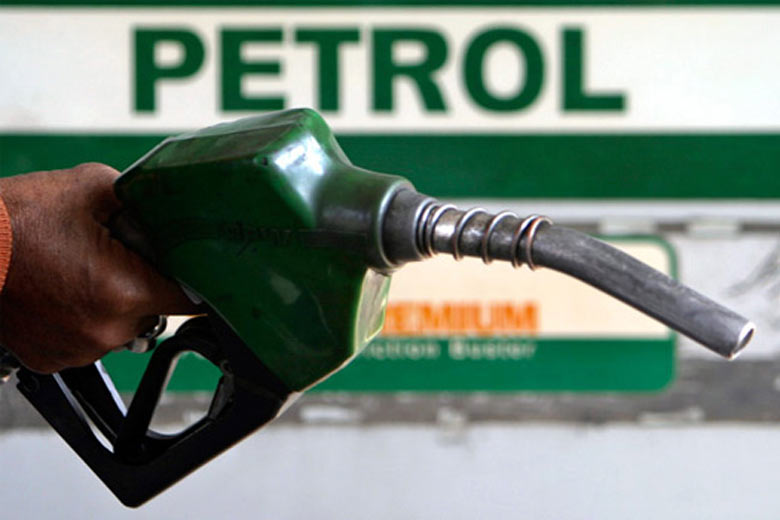- Petrol Price Hike Not on the Cards, Kachikwu Insists
The Minister of State for Petroleum Resources, Dr. Ibe Kachikwu, has said the federal government is not about to increase the price of petrol in the country, at least not in the near future.
Kachikwu, instead, said the government would review some of the elements in the pricing template of the Petroleum Products Pricing Regulatory Agency (PPPRA), which are still within its control with operators in the downstream sector to ensure that the price remains in line with market fundamentals.
The minister made the statement shortly after he was honoured alongside former board chairmen and executive secretaries of PPPRA by the Petroleum and Natural Gas Senior Staff Association of Nigeria (PENGASSAN), PPPRA branch on Saturday night in Abuja.
He also stated that the recent meeting President Muhammadu Buhari had with traditional leaders and other stakeholders of the Niger Delta on militancy in the region, was the first step in government’s attempts to clear the existing trust deficit in its dialogue with the militants, ahead of its inclusive development plan for the oil-rich region.
While responding to a question on Nigerian National Petroleum Corporation’s (NNPC) recent defence of the fuel price hike at its retail outlets from N141 per litre to N145, though still within the approved price band, Kachikwu said: “First, I am not aware that the NNPC has increased its price. I need to look into that, it’s a bit of surprise for me, because there are processes in doing this.
“If they have done that, it means they are doing it wrongly. Let me find out what the facts are. Having said that, the reality is that what we did at the point where we did some liberalisation was to enable the market float the price.
“Obviously, as you look at foreign exchange differentiations and all that, it would impact the landing cost of petrol.”
“The worst thing you could do is to go back to the era where we basically were fixing prices. What we ought to be doing is watching prices, making sure that they are not taking advantage of the common man; making sure that the template is respected.
“One of the things I think we had hoped to do, which we should still do before we embark on any price increase is to work on those templates. There are still areas that are within government control.
“These are payments to the Ministry of Transport and the rest, payments to the Nigerian Ports Authority (NPA) that are foreign-currency denominated.
“We are working on the possibility of being able to shift that out so that you still can modulate the prices within where it is right now. But I would hold a conversation with the industry and see how it is going,” he stated.
He further explained that what was key was to ensure that fuel queues do not resurface and those that are investing in petroleum products marketing must be able to predict the “pricing methodologies, the pricing consequences and the actions to be able to justify their investments”.
He added: “At the end of the day, I think PPPRA is the agency that has the authority to say it is time the templates does justify some level of movement, otherwise you have a crisis of individual decisions on pricing.”
On the recent peace dialogue with the Niger Delta region and the sentiments raised against the recent demands put forward by its stakeholders to President Muhammadu Buhari, he said the government was being meticulous in its handling of the issues, adding that the president was committed to a lasting solution to the region’s challenges.
“The Niger Delta is not an easy terrain to deal with, both in physiography and in terms of its politics. Obviously, what has been happening over the last one year has been turbulent for the country, its resources and even the sustenance of the oil industry.
“What we did in terms of that meeting was to be able to bring them to see the president so that we can remove the level of trust deficit that had existed.
“The president is committed to finding solutions to these problems, but he is committed to finding lasting solutions, not one-off measures that would come to haunt us again afterwards.
“That is why he is taking his time to understand how these people operate,” said Kachikwu.
He stated that in addition to the dialogue, the government would be embarking on a series of actions, like the Maritime University, opening of business opportunities in the area, and clean-up of the environment.
“I do not think people should kick; you are never going to have a situation in this country where you are doing something and there won’t be criticism.
“But that should not discourage us. I think some of the efforts we are making are yielding results.
“The militancy is not as pronounced as it is today and I think the militants themselves are very reasonable, as they begin to see some unity, some coalition of their elders and their leaders, as well as their colleagues into unions to be able to find lasting solutions,” he added.
Kachikwu equally described the honour that PENGASSAN bestowed on him and past PPPRA officials like Chief Rasheed Gbadamosi, Ahmadu Alli, Dr. Oluwole Oluleye, Abiodun Ibikunle, Goddy Egbuji, Reginald Stanley and Farouk Ahmed, among others, as humbling.

 Naira4 weeks ago
Naira4 weeks ago
 Naira4 weeks ago
Naira4 weeks ago
 Travel3 weeks ago
Travel3 weeks ago
 Jobs4 weeks ago
Jobs4 weeks ago
 Naira3 weeks ago
Naira3 weeks ago
 Naira3 weeks ago
Naira3 weeks ago
 Investment4 weeks ago
Investment4 weeks ago
 Travel4 weeks ago
Travel4 weeks ago




























